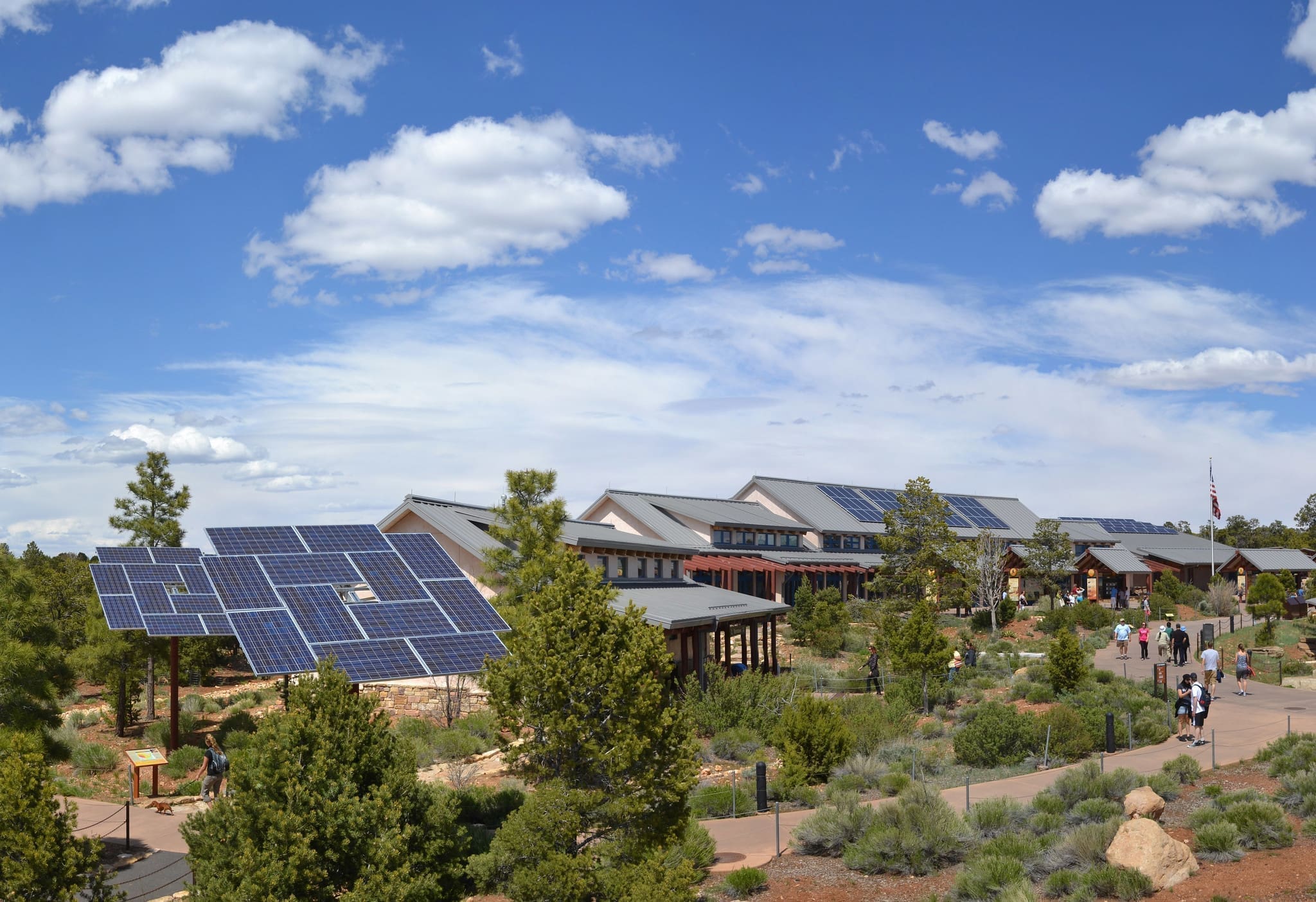Developers of Ohio Solar projects are hoping that listening to local communities in Ohio early in the design stage will boost their chances for success before state regulators.
Ohio Solar Projects
Zany: It’s not at all surprising that the fossil fuels industry is fighting against solar power projects at the local level as well. To intentionally feed residents disinformation about solar power projects is disgusting. Misleading people about something good just so you can stay rich.
How do the fossil fuel companies think they’re going to make money when it’s too hot for people to leave their homes? When there’s no planet left to extract oil from?
Any time I see corporations, lobbying groups, and government operatives attacking and fighting against renewable energy efforts or any type of climate action, all I can think about is “Don’t Look Up.”
If you haven’t seen the movie yet, I demand you watch it. ? It is that important. I wish everyone in government was forced to watch it so they could see how absolutely foolish and stupid they’re being.
Greedy people: If you want to continue making more and more money, you better do something about climate change or we’re cooked. Literally. Without people to buy and use your products, you can’t make any money. Which is more important to you than people’s lives.
“We are really invested in and committed to being good neighbors,” said Lindsey Workman, community affairs manager for Vesper Energy. The company held three meet-and-greet sessions in Greene County this spring for its proposed Aviation Energy Center project, in addition to earlier meetings with trustees for several townships.
Another developer, Open Road Renewables, also hosted listening tour sessions this spring to learn about community issues and residents’ concerns related to its proposed Grange Solar project in Logan County. The meetings began at the end of April and ran through June.
The companies’ proactive community engagement approach comes as some Ohio solar projects have faced significant local opposition, often stoked by fossil fuel interests. State policy under a 2021 law known as Senate Bill 52 also has empowered anti-solar groups to ban many renewable energy projects or pressure local elected officials to oppose them.
“I think it will be a trend,” to seek community input early on, especially if it helps lessen local opposition, said Jane Harf, executive director for Green Energy Ohio, which counts multiple solar developers among its members. At the same time, “it’s really hard to quantify opposition,” Harf added. A minority of opponents can be much more vocal and apply more pressure to local officials than a majority of people who are supporters or just neutral.
Open Road Renewables currently faces challenges from two opposition groups relating to its proposed Frasier Solar Project in Knox County. The Energy News Network has reported on links between speakers for one of the groups and pro-fossil fuel interests.
Vesper Energy faced opposition for its proposed Kingwood Solar project in Greene County, which led the the Ohio Power Siting Board to reject the company’s application based on substantial local opposition. The case is before the Ohio Supreme Court on appeal. The company argues, in essence, that the board’s legal responsibility to determine the public interest extends beyond assessing how popular a project appears to be locally based on the numbers of comments for and against it.
These companies hope that early, proactive outreach to the community can help smooth the paths for their latest projects before they begin the formal power siting board process.
“We’ve been putting a very heavy emphasis on public engagement and, more importantly, listening to concerns from as many stakeholders as we can in the community,” said Doug Herling, a vice president for Open Road Renewables.
Patricia Hicks heads Outcomes Management Group, a Columbus-based consulting firm, which helped run the listening sessions for Open Road Renewables. The team aimed to invite people representing a broad spectrum within the county.
“You want to make sure that you don’t just get one group of people providing information,” she said. “You don’t want to have a biased listening group.”
During the sessions, small groups were also asked both closed- and open-ended questions. Hicks’ firm is working now to finalize a report on the feedback, both positive and negative.
Using what’s learned
While companies say footprints for the Aviation Energy Center and Grange Solar projects have not yet been finalized, they say insights from the community input will help guide how those boundaries are determined.
Open Road Renewables plans to use the report from Hicks’ firm to develop a set of commitments to the community. Getting feedback earlier in the process can help the company tailor the project to deal with specific concerns, versus waiting to negotiate more permit conditions later, Herling said.
The final report from Outcomes Management Group will also help the company make the community concerns section of the project’s power siting board application more robust, Herling said. Hicks expects the work also will help the company in future communication efforts relating to the project.
Vesper Energy has already committed that the Aviation Energy Center project won’t border nonparticipating landowners’ properties on more than one side, Workman said. Setbacks from residential property lines, state parks and other public lands also will range from 300 to 500 feet, which is more than Ohio Power Siting Board rules require.
“We care about the feedback, and that’s what we heard,” Workman said.
Workman said Vesper Energy is willing to make similar commitments if it wins the Kingwood Solar case on appeal. She noted the company also has donated nearly $40,000 in the past year to support work in Greene County by various nonprofit groups, including the Ohio State Parks Foundation, Camp Clifton 4-H Camp, Yellow Springs Community Foundation, Family Promise of Greene County, and Greene County FISH Pantry.
“There’s no strings,” Workman said. “We’re trying to make sure that we become good neighbors.”
Such strategies are also bets that listening now can save headaches later.
Ohio Solar Projects are ‘Covering their bases’
Attendees and others have praised the companies’ approach, but it’s too soon to say how successful it will be.
Logan County Administrator David Henry didn’t attend the Grange Solar sessions in person and said he isn’t in a position to speak for or against the project. He added that new, non-grandfathered projects are banned for unincorporated areas of most of the county’s townships under SB 52. Nonetheless, Henry commended Open Road Renewables for holding the sessions about the proposed project.
“I will say that I’m glad that Open Road Renewables is allowing the public to have their input on it both positively and negatively — they’ve had plenty of both,” Henry said. “I think that’s a good idea on their part to let people have their voice heard.”
Logan County Administrator David Henry
Members of the Greene County Board of Commissioners would not comment for this story due to ongoing litigation, said Ashley Schommer at the Greene County offices. The county is one of the intervenors against the Kingwood Solar project in Vesper Energy’s appeal.
“Vesper seems interested in listening to community feedback and seeing what it can do to be a cooperative business entity,” said Kate LeVesconte, a local resident who is part of a local pro-solar group. “I think that is a really good idea when it is interacting with legitimate concerns and not disinformation-driven fear.”
Unfortunately, LeVesconte added, she hears a lot of false information, such as claims about contamination, arguments about whether farmland can eventually be restored and more.

“We’re still facing an uphill battle regarding this relatively conservative area feeling that solar farms are probably not good for prime agricultural land,” she said.
Real estate agent Chris Blosser, who attended one of the four listening sessions Open Road Renewables hosted in Logan County, said the company “is doing everything right, and they’re covering all their bases. They’re doing things to address people’s concerns.”
She gave the example of the company committing to provide an upfront bond to restore the property at the end of the project’s lifespan.
“Unfortunately, there’s quite an organized effort to fight this installation,” Blosser said. Others at the listening session she attended had already gone to some anti-solar meetings. “And they had information that had been spoon-fed to them.”
A large percentage of people who attended the Open Road Renewables sessions or answered its online survey said they got their news from social media, Hicks said. As a result, many were relying on information that hadn’t been verified.
At the same time, many people at the meetings did want to ask questions, she noted. And if people were able to remain open-minded, they could see potential benefits from the project, Hicks said. Beyond asking about concerns, attendees were asked how they would want to see company payments used in the community. The responses included new insights for the company to consider.
“Listening brings all kinds of interesting discoveries,” Hicks said.
Hurdles remain
Meanwhile, opponents of utility-scale solar projects have been hosting their own meetings to stir up discontent.
For example, Citizens for Greene Acres is an opponent of Vesper Energy in the Kingwood Solar case, and most of its activities so far have focused on that project.
And in Logan County, a group called Indian Lake Against Industrial Solar has mobilized to oppose Open Road Renewables’ Grange Solar project. The county has already had experience with two other anti-solar groups opposing the proposed Fountain Point solar farm: No Solar in Logan County and Citizens against Fountain Point.
“Developers in the solar industry earn trust in communities by communicating proactively with interested parties and addressing questions posed by community members,” said Will Hinman, executive director for the Utility Scale Solar Energy Coalition of Ohio. Conversations start before applications are filed and continue throughout projects’ siting, construction and operational phases.
For now, Vesper Energy and Open Road Renewables hope their efforts and planned follow-up will lay the groundwork for that trust.
Grange Solar and the Aviation Energy Center are both in the early stages. Both developers’ efforts come before two public information meetings they will need to hold before filing formal applications for the projects. The updated Ohio Power Siting Board rule took effect on May 30.
Open Road Renewables plans to submit its application sometime in September, Herling said. The company expects it might then get a decision from the Ohio Power Siting Board by the end of next year.
Vesper Energy doesn’t have a definitive timeline yet for the Aviation Energy Center or the Kingwood Solar project. “This commitment to community collaboration is our guiding principle,” Workman said. “Our goal is to get it right, however long that takes.”
Energy News Network is a nonprofit news service covering the clean energy transition. If you would like to support us please make a donation.
This article was originally published on Energy Network and republished here, with permission, under a Creative Commons BY-ND 4.0 license. Learn more about third-party content on ZanyProgressive.com.





